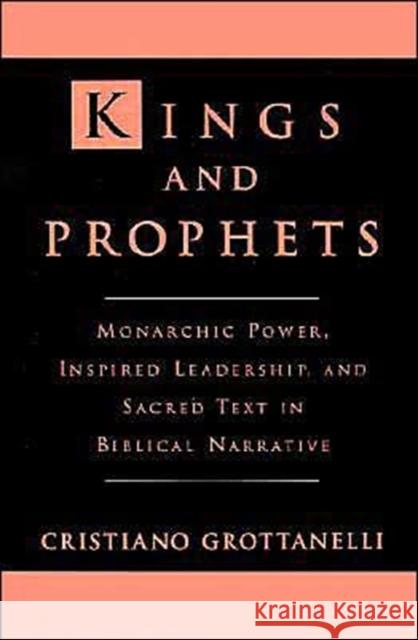Kings and Prophets: Monarchic Power, Inspired Leadership, and Sacred Text in Biblical Narrative » książka
Kings and Prophets: Monarchic Power, Inspired Leadership, and Sacred Text in Biblical Narrative
ISBN-13: 9780195071962 / Angielski / Twarda / 1999 / 224 str.
This collection of essays examines the respective religious and social functions of kings and prophets as they are presented in the biblical narratives. Biblical kingship is easily shown to be a specific instance of an ancient and widespread institution--sacred monarchy--that was the pivot of most state organizations throughout antiquity; prophetic authority is described as a typical institution of ancient Hebrew society. The difference between monarchy and prophecy is radical, because the former implies a hereditary power and is upheld by its subjects who feed their kings with taxes, while the latter derives its authority from allegedly direct divine inspiration, and though it is also economically dependent it is not explicitly presented as being based upon systematic exploitation.
Cristiano Grottanelli interprets the rise of prophecy as a consequence of a crisis of monarchical structures at the beginning of the Iron Age, and connects it to similar phenomena attested in ancient Greek texts derived from a similar crisis. Though monarchy finally won the day in the Ancient Mediterranean in a new imperial form, the new literatures in Greek and Hebrew consonantic and alphabetic scripts shaped nonmonarchic figures to which they attributed some of the functions previously pertaining to monarchy. These new literatures, produced by two cultures that were both highly literate and organized according to nonmonarchical principles, diverged radically in their development and final outcomes. In the Hebrew tradition, monolatry and an official canon of sacred writings were the final result; the prophetic principle was thus overcome by a new ideological construction, centered upon inspired scriptures rather than upon the impromptu performances of inspired persons. In using the prophetic principle against the monarchic, the canonical texts paradoxically shaped their own authority above that of living prophets.










